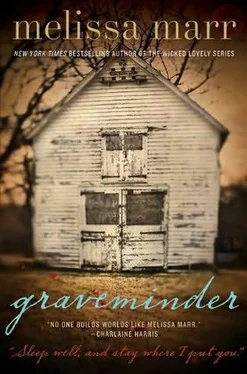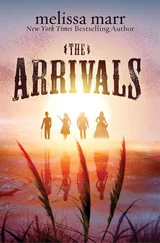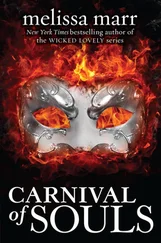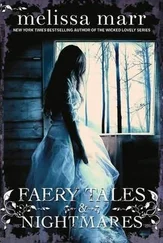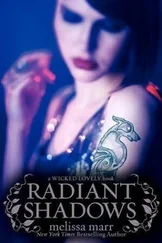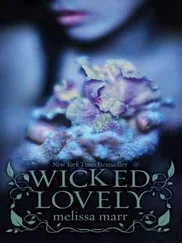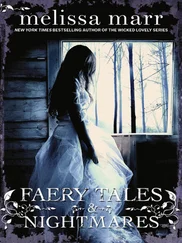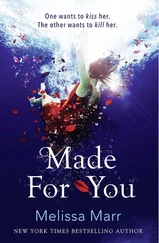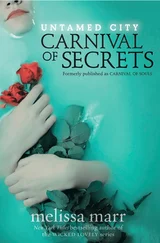“Your children eat people.” She shuddered. Here, with him, her affection for the dead was lessened. Here, she could feel the horror of what they had done.
“Only when they aren’t cared for,” he pointed out. “You returned them here. Daisha could have gone beyond the town. She was strong enough, but you stopped her.”
“So this means you’re going to act like I’m some adopted mother to every dead person, like I’m den mommy to the dead?” She stood up and paced away from him.
“I’ve not had it phrased thus before, but”—he smiled beatifically—“yes, that works well enough as an answer. Graveminders are sacred. Both here and there, you are prized above all others to me, to our many children.”
“So the bullets on my first visit were a Mother’s Day gift? The lunging, let-me-eat-your-skin thing they do is a hug?” Rebekkah leveled a glare at him. “I don’t think so.”
“Some children can be unruly, I admit. You’ll care for them, though, and I’ll do all I can to care for you.” He gave her a crooked smile and then held out a small plate with tiny sandwiches on it.
“This is all extremely fucked up,” she muttered.
But she reclaimed her seat across from him all the same.
Charles looked content as he lifted a sandwich to his lips.
“What about Alicia?” she asked.
The hand holding the sandwich paused almost imperceptibly before Charles said, “The late Ms. Barrow is a never-ending headache.”
“And?”
“And nothing. There’s nothing else I’m inclined to say.” He took a bite of his sandwich.
FOR A BRIEF MOMENT, CHARLES THOUGHT THAT REBEKKAH HAD ACcepted his answers, but then she scowled at him. “No.”
“No?” he echoed.
“I just sentenced a woman to die because she wanted to be a Graveminder, but not your ‘servant.’ ” Rebekkah shook her head. “I didn’t sign a contract. I’ve been playing guess-the-rules, and you are withholding information. I deserve some answers, Charles.”
There was nothing that said he had to answer, no rule that he must reveal his failings, but he hadn’t lived for eternity without learning how to judge people. His Graveminder would be more sympathetic if she knew the truth. For Charles, that was reason enough.
“Once, almost three hundred years ago, a woman, Abigail, came here. Opened a gate and came to me. A living, vibrant woman had entered my domain. She really was an incredible woman, my Abigail. Spirited like you.” He gave Rebekkah a small smile. “There are other lands of the dead, but this one was still new.”
“Why?”
He waved his hand. “Space issues, mostly. They fill. New ones appear. I took charge of this one, was honored to, really. I’m not the only face of Death, my dear, but in some place before memory, I’d been something else. I know that. Nothingness given shape.”
“Oh.”
“It makes a man”—he offered her a self-deprecating smile—“eager to prove himself, I suppose. I had my new space, new dead, and I was arrogant. I fell for her. I know it sounds silly, but from nothingness to being a functionary being can be dizzying. Abigail beguiled me, and so when she asked to visit the other world, I said yes.”
He tried to gauge Rebekkah’s response, but she was silent and hard to read, so he continued. “Once the path was opened, others went back, too. Unlike Abigail, they were dead. They ravaged people, nearly decimated the fledgling town—and Abigail began dragging them back here.
“I cannot go there, could not help her in any useful way, so I made an arrangement with the town.” He took a deep breath, looked directly at Rebekkah. “I could not remove the gateway, but I could give the town other things, safeguards to help keep the world at large safe, protections so they would think that the change, the gateway, was their doing. If they’d known Abigail had been at fault for opening the door, they would’ve killed her, and then my dead would have overrun them. I had to protect her.”
“So you lied,” Rebekkah said softly.
“So I made a bargain,” he corrected. “If she died, they would all have died. That world—Claysville—would’ve become an extension of this one eventually.” He didn’t flinch from Rebekkah’s judgment. He simply waited.
“And Abigail?” Rebekkah prompted.
“She found a man, a living man, who protected her.”
“The first Undertaker,” Rebekkah murmured.
Charles nodded. “They helped make the contract with the town. The consequence of which is that there are new Graveminders and Undertakers who follow in their footsteps.”
“Because you made a mistake,” she said softly.
“Because I fell in love,” he admitted.
REBEKKAH KNEW WITHOUT LOOKING BEHIND HER THAT BYRON HAD ENtered the room. Charles’ pleading expression gave way to a wicked grin. “Being loved like that has an appeal, doesn’t it?”
“You know I’ll tell him, don’t you?” she said.
“Of course.” Charles smiled. “But when you’re older than dirt, you do learn to take pleasure where pleasure is offered.”
“No one’s offering.” Byron’s voice was more exhausted than irritated, though. He pulled over a chair, spun it backward, and straddled it.
With a contented look at the two of them, Charles snapped his fingers. Ward appeared with a dusty bottle of Scotch in one hand and glasses in the other. “Drink?”
Byron nodded, and Ward poured.
“Rebekkah?” Byron asked.
“No thanks.” She watched, bemused, as Charles and Byron assessed each other.
“I’ll be back to read the contract,” Byron said.
“Your sort always are,” Charles answered with an odd cadence, as if the conversation were rote.
“I’m not just a sort.” Byron picked up his glass.
Charles lifted his glass. “One always hopes.”
They both emptied their glasses, and then Charles set his glass down, reached across the table, and took Rebekkah’s hand in his. “Until next time, my dear. Please know you are ever welcome.”
“I do know that.”
“Good.” Charles kissed her hand and then stood. He turned his attention to Byron then. “You are welcome to come peruse the contract at your leisure.”
Byron tilted his head, but didn’t rise. “I’m not ever going to like you, am I?”
With a small shrug, Charles said, “Such is the nature of our roles. I will remind Rebekkah of the world she could rule here, and you”—his expression was briefly pitying—“will do all you can to remind her that life is for the living.” He looked then at her. “And we will both try to keep her safe from the dead as she forgets that they are dangerous.”
Ward crossed the room and opened the door. Charles followed. “Unlike Alicia, I don’t keep a ledger. The Scotch is a gift. No strings.”
And then he was gone.
After a quiet moment, Byron stood up. He leaned down and pulled Rebekkah into his arms for a slow kiss, and then said, “Let’s go home.”
Despite everything she knew, Rebekkah still felt a twinge of loss as she left Charles and the land of the dead. Whether she liked it or not, she did belong to both worlds. She had no illusions that Charles was entirely trustworthy, but she believed him and she trusted him.
Mostly.
Rebekkah didn’t let go of Byron’s hand as he replaced the torch in its wall mount and slid the cabinet across the tunnel. She held on to him as they walked across the storage room and into the hall. He released her hand only long enough to lock the door, and the moment that was done, she took his hand again.
With an easy silence that she’d never known, they ascended the stairs. She accepted his help with her jacket and helmet, and they sped into the night on the Triumph. There was no question as to where they would go—and it occurred to Rebekkah that she’d never seen his apartment, and probably wouldn’t see it until he was leaving it. The funeral home was his home now. Again. Just as Maylene’s house was her home now. Again. They were both where they needed to be, where they’d been headed for most of their lives.
Читать дальше
Конец ознакомительного отрывка
Купить книгу
